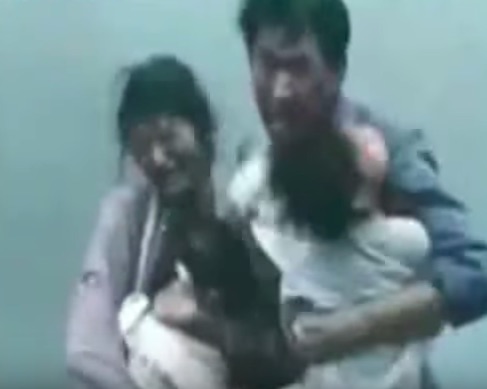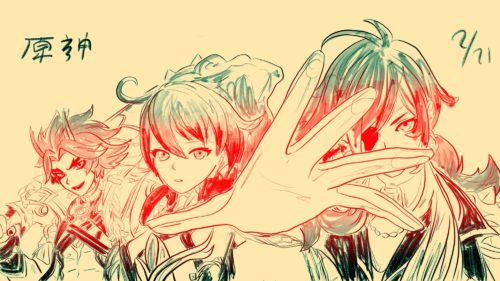Friday Song: The Orphan of Asia, by the ‘idols’ idol’ Lo Ta-yu

Taiwanese singer-songwriter Lo Ta-yu (罗大佑 Luō Dàyòu) is known as the idols’ idol in the Mandopop scene. Among many of his classic songs, “The Orphan of Asia” (亚细亚的孤儿 Yàxìyà de gū’ér) stands out for both its poetic lyrics and its commentary on social and political issues.
The orphan of Asia is crying in the wind,
On his yellow face there is the red mud;
In his black eyes there is a white terror,
The western wind sings a sad song in the east.
The orphan of Asia is crying in the wind,
Nobody wants to play a fair game with you;
Everyone wants to grab your beloved toys,
My dear child, why are you crying?
So many people are trying to solve the puzzles,
And so many people are sighing at midnight;
So many people are sweeping their tears in silence,
Dearest mother, what truth is this?
That orphan was (and still is) Taiwan. The song was created in 1983 when the Taiwanese were lost and confused, both with their own identities and Taiwan’s future. The U.S. broke diplomatic ties with Taiwan in 1979, and the People’s Republic of China replaced Taiwan in the UN. Officially, Taiwan’s name was the Republic of China, and Chiang Kai-shek’s slogan of “counterattack the mainland,” which had been a national mission, looked less and less realistic. Although Taiwan enjoyed huge economic growth at the time, people were beginning to question, with more and more urgency, whether they were Taiwanese or Chinese, what status Taiwan really had in the world, and where was Taiwan going.
The lyrics draw a vivid picture of Taiwan’s predicament: It’s threatened by the red Communist Party and at the same time haunted by the white terror of the Kuomintang; it finds itself split apart over dueling Western ideologies of democracy and Marxism; and the people question who are their real friends — who would stand up and protect them? Were those “friends” simply using Taiwan as a tool, to be discarded when no longer useful? The pretty talk of fairness, equality, the spirit of the alliance, where were they now? Did they talk only to seize the “toys” in Taiwan’s hands?
The song was written while Taiwan was under martial law (which wouldn’t be lifted until 1987), which meant its political references could have caused serious problems for its creator. To distract authorities, Lo Ta-yu dedicated the song “to the refugees living in Indochina Peninsula,” referring to the Kuomintang soldiers and their families in southeast Asia who had been either abandoned by the Kuomintang government after Chiang lost the Civil War or chose to stay to prepare for Chiang’s dream of “taking back mainland China.” As Taiwan’s status in the world changed in the 1970s, and after Chiang’s death in 1975, the soldiers on the Indochina Peninsula and their children became forgotten, left alone to struggle on foreign land. Dedicating a song to them was more politically safe than sharply pointing at Taiwan’s political isolation.
This wouldn’t be the first or last time that Lo Ta-yu wrote songs touching on social and political issues. For the handover of Hong Kong from Britain to China in 1997, he wrote “East of Queen’s Road” (皇后大道东 huánghòu dàdào dōng) and “Pearl of the Orient” (东方之珠 dōngfāng zhī zhū). Inspired by Michael Jackson’s “We Are The World,” Lo created “The Future Will Be Better” (明天会更好 míngtiān huì gèng hǎo), calling for a peaceful world, which 60 Mandopop singers gathered to record. In his songs, he criticizes Taiwan’s government and politicians, makes fun of the Chinese Communist Party, and satirizes British colonization. Not surprisingly, many of his songs were banned in Taiwan and the Chinese mainland — sometimes the same song banned in both places — for various reasons.
Friday Song is SupChina’s weekly sign-off. Let us know what you thought of the week that was in the comments below, or email editors@thechinaproject.com.





